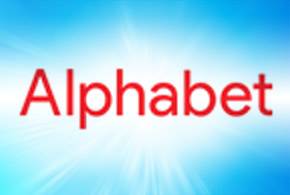Alphabet CEO Larry Page reportedly wants Fiber staff to be cut significantly. However, the reports about Alphabet scaling back Fiber seem to be at odds with recent CFO comments.
Reports this week that Alphabet CEO Larry Page wants Google’s Fiber operation to be scaled down substantially because of its disappointing performance so far appear to be somewhat at odds with recent comments and developments related to the broadband service.
In an Aug. 25 report, The Information said that Page had recently ordered Google Fiber’s head Craig Barrett to reduce the size of the Fiber team by half, to about 500 people.
The move apparently was prompted by Google Fiber’s failure to attract anywhere near the number of subscribers that executives had hoped it would when they first launched the project, The Information said, citing anonymous sources apparently close to the matter.
Fiber executives had hoped to have at least 5 million subscribers for the broadband service in five years. But so far, more than five years after Google first began trials of the broadband and TV service, only about 200,000 people have signed up for it, The Information reported.
Google Fiber is a high-speed internet and TV service that is currently available in seven metro areas, including Charlotte, Atlanta, Nashville and Kansas City. Google offers residential customers two options with Fiber—a 1G-bit speed Internet-only service for $70 a month and a separate Internet and TV package for $130 per month.
The company has claimed its broadband service is nearly 100 times faster than comparable services from incumbent providers while also being lower priced.
Early on, analysts had expected that Fiber, backed by Google’s enormous resources and wealth, would force other service providers to update their own services or to lower prices in order to compete. So far at least, that has not happened and the Fiber rollout has been less dramatic than some might have expected.
But up to now, at least the company has shown it remains bullish on Fiber. In Alphabet’s earnings call just last month, Chief Financial Officer Ruth Porat described Fiber as a “huge market opportunity” for the company. “We’re focused on creating abundant connectivity on networks that are always fast and always open, as we’ve talked about,” Porat had noted. “And we’re continuing to work closely with cities, given their excitement.”
The company also has continued rolling out Fiber in previously announced cities. Google, for instance, began signing up customers for the service in Salt Lake City and Atlanta just this month and Charlotte, N.C., in July.
The questions that have surfaced about Fiber in recent months have pertained to the relatively slower-than-expected deployment of the fiber lines in the major metros where Alphabet wants to introduce the service
Since beginning trials in 2011, Google—and now parent company Alphabet—has worked with city and municipal officials in major metro areas around the country to figure out how to lay the fiber lines that are needed for the service, both underground and on poles.
Where possible, Google has tried to use existing municipal owned utility poles for stringing its fiber. In some places, Google is seeing if it can use the poles of incumbent ISPs to hang its fiber—an attempt that companies like AT&T and Comcast have resisted vigorously.
The cost and the issues that Alphabet has begun running into in deploying fiber appear to have prompted the company to look at other options for delivering the service.
Earlier this year, Alphabet acquired Webpass, a San Francisco-based company that specializes in delivering high-speed Internet services using point-to-point wireless technology rather than wires. Google is looking at using both fiber and wireless to deliver high-speed Internet services going forward, Porat said.






